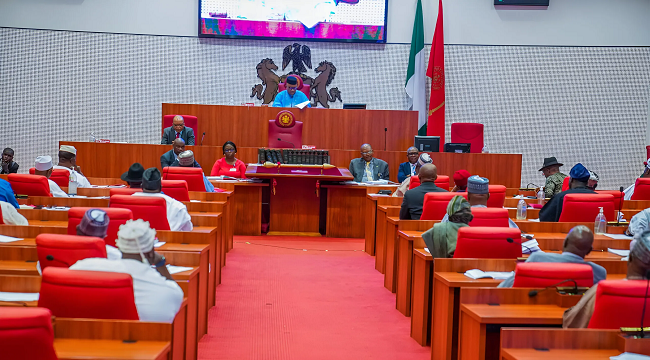The Nigerian Senate, on Thursday, moved President Bola Tinubu’s four tax reform bills closer to becoming law by passing them for second reading through voice votes. These bills, transmitted to the National Assembly on October 3, 2024, seek to modernize and harmonize Nigeria’s tax system, in line with the recommendations of the Taiwo Oyedele-led Tax Reforms Committee.
Overview of the Bills
The four tax bills, central to President Tinubu’s fiscal reform agenda, include:
- Nigeria Tax Bill 2024
- Provides a fiscal framework for taxation in Nigeria.
- Tax Administration Bill
- Establishes a concise legal framework for tax administration to minimize disputes.
- Nigeria Revenue Service Establishment Bill
- Repeals the Federal Inland Revenue Service (FIRS) Act to establish the Nigeria Revenue Service.
- Joint Revenue Board Establishment Bill
- Harmonizes revenue administration, establishes a Tax Tribunal, and introduces a Tax Ombud for dispute resolution.
While the reforms were generally seen as critical for overhauling the tax system and reducing the tax burden, the session was not without its disagreements.
Senator Ali Ndume raised concerns about the timing of the reforms, suggesting that they might burden manufacturers, ultimately passing costs to consumers. He also noted that some provisions, such as those related to VAT and derivation, may require constitutional amendments.
- “Reforms are necessary, but the timing is questionable given Nigeria’s current state,” Ndume remarked.
- He advocated for further negotiations with key stakeholders, including governors and traditional rulers, before finalizing the reforms.
Conversely, the Chief Whip argued that the bills should advance to the public hearing stage, allowing for broader input before detailed consideration.
In response to the backlash, the Presidency clarified that the reforms aim to strengthen fiscal institutions and are not targeted at any region. The bills are intended to provide a unified framework to reduce tax disputes and boost economic development.
Also with the second reading complete, the tax reform bills will proceed to public hearings, where citizens and stakeholders can provide feedback. Once reviewed, the Senate will undertake a clause-by-clause consideration before a final vote.
Stay tuned to 9am News Nigeria for more Breaking News, Business News, Sports updates And Entertainment Gists.
















